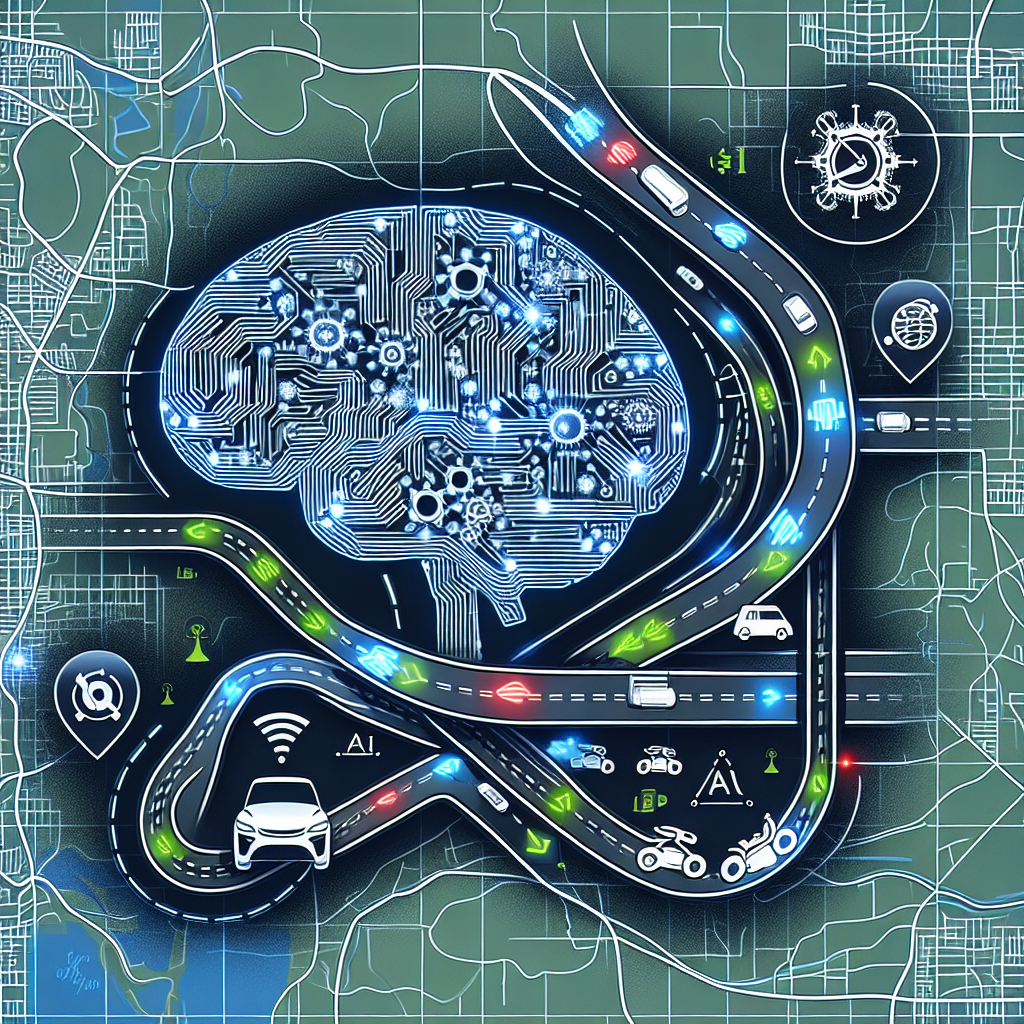Enhancing Route Optimization with AI Technology
Route optimization is a critical component of logistics and transportation management. It involves finding the most efficient way to deliver goods or services from one location to another while considering factors such as traffic conditions, delivery time windows, and vehicle capacities. Traditionally, route optimization has been done manually by transportation planners or using basic algorithms. However, with the advancements in artificial intelligence (AI) technology, route optimization can now be significantly enhanced to improve efficiency, reduce costs, and increase customer satisfaction.
AI technology uses complex algorithms and machine learning techniques to analyze vast amounts of data and make predictions or decisions based on that analysis. When applied to route optimization, AI can consider a multitude of variables in real-time to create the most efficient routes for delivery vehicles. Some of the key benefits of using AI technology for route optimization include:
1. Real-time updates: AI algorithms can continuously analyze data from various sources such as traffic sensors, GPS devices, and weather forecasts to provide real-time updates on the best routes for delivery vehicles. This allows transportation planners to make quick adjustments to routes in response to changing conditions, such as traffic congestion or road closures.
2. Cost savings: By optimizing routes to minimize travel time, fuel consumption, and vehicle wear and tear, AI technology can help companies reduce their transportation costs. This can lead to significant savings in the long run, especially for companies with large fleets of vehicles.
3. Improved customer satisfaction: By delivering goods or services faster and more reliably, AI-optimized routes can enhance customer satisfaction. Customers are more likely to be satisfied with a company that consistently delivers on time and in good condition, leading to increased loyalty and repeat business.
4. Sustainability: AI-optimized routes can also help reduce the environmental impact of transportation by minimizing fuel consumption and emissions. By taking into account factors such as traffic patterns and vehicle capacities, AI technology can help companies operate their fleets in a more sustainable manner.
5. Scalability: AI technology can easily scale to handle large volumes of data and complex routing scenarios, making it suitable for companies of all sizes. Whether a company has a small fleet of delivery vehicles or a large network of distribution centers, AI can help optimize routes to maximize efficiency.
Frequently Asked Questions (FAQs)
Q: What data sources does AI technology use for route optimization?
A: AI technology can use a variety of data sources for route optimization, including GPS data, traffic sensors, weather forecasts, historical traffic patterns, and delivery time windows. By analyzing these data sources in real-time, AI algorithms can create the most efficient routes for delivery vehicles.
Q: How does AI technology handle dynamic routing scenarios?
A: AI technology can handle dynamic routing scenarios by continuously analyzing real-time data and making adjustments to routes as needed. For example, if a delivery vehicle encounters unexpected traffic congestion, AI algorithms can reroute the vehicle to avoid delays and ensure on-time delivery.
Q: Can AI technology integrate with existing transportation management systems?
A: Yes, AI technology can integrate with existing transportation management systems to enhance route optimization capabilities. By connecting AI algorithms with transportation management systems, companies can leverage the power of AI to improve efficiency and reduce costs.
Q: How can companies implement AI technology for route optimization?
A: Companies can implement AI technology for route optimization by partnering with a technology provider that specializes in AI-powered logistics solutions. These providers can help companies integrate AI algorithms into their existing systems and tailor them to their specific routing needs.
Q: What are some key considerations when implementing AI technology for route optimization?
A: Some key considerations when implementing AI technology for route optimization include data quality, system integration, scalability, and user training. Companies should ensure that they have access to high-quality data, integrate AI algorithms with their existing systems, scale the technology to meet their needs, and provide training to users on how to effectively utilize the technology.
In conclusion, AI technology has the potential to significantly enhance route optimization in logistics and transportation management. By leveraging the power of AI algorithms and machine learning techniques, companies can optimize their delivery routes to improve efficiency, reduce costs, and increase customer satisfaction. With real-time updates, cost savings, improved customer satisfaction, sustainability, and scalability, AI technology offers a wide range of benefits for companies looking to streamline their transportation operations. By partnering with a technology provider that specializes in AI-powered logistics solutions, companies can implement AI technology for route optimization and stay ahead of the competition in today’s fast-paced business environment.

